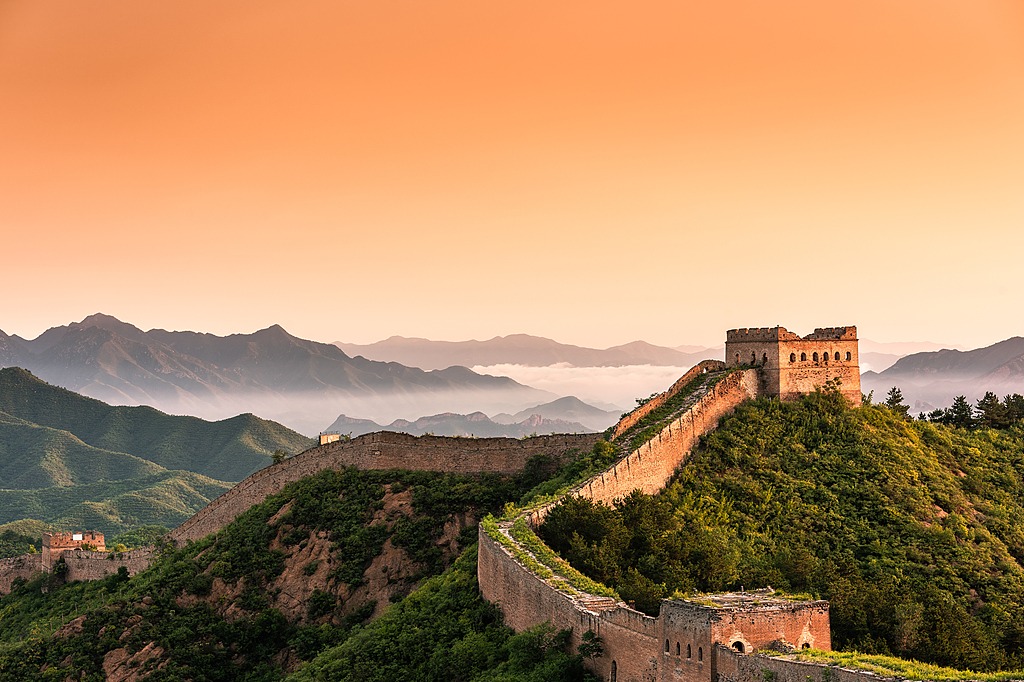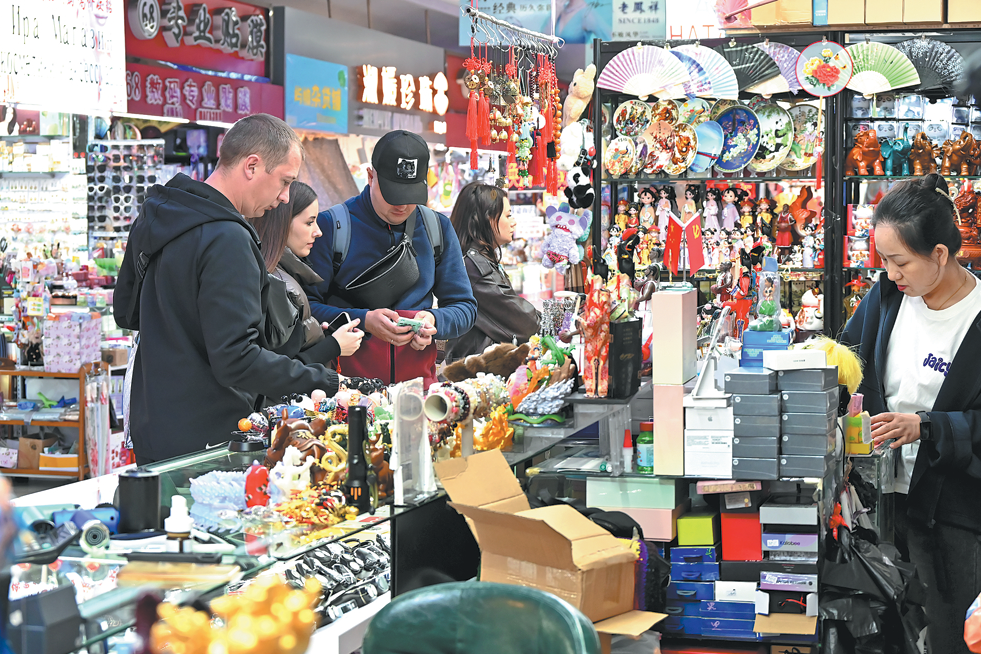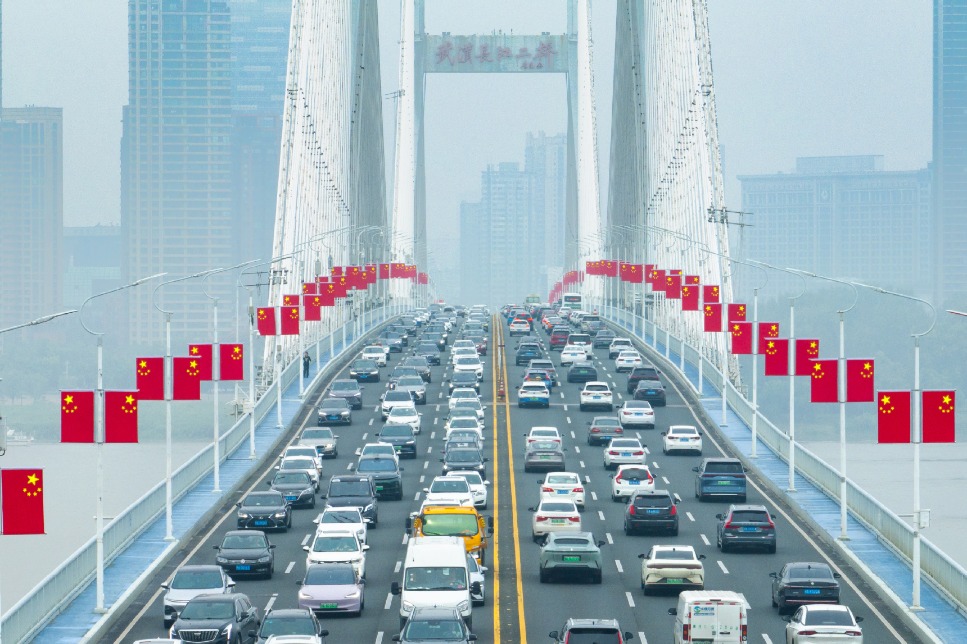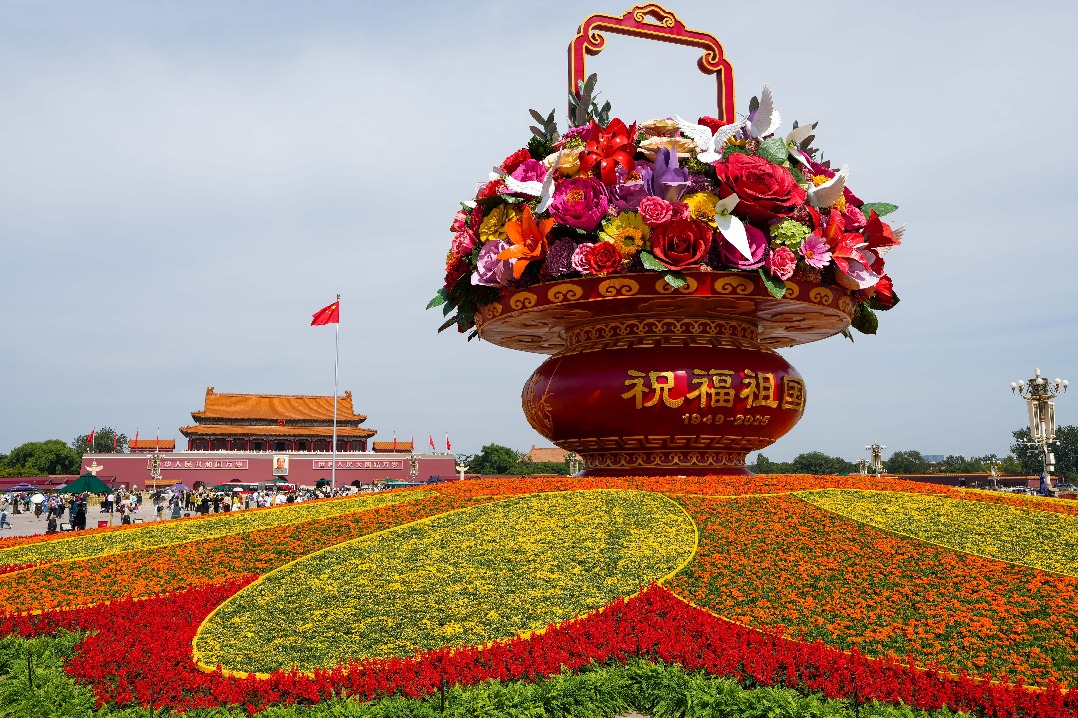Ma's tribute to ancestors crucial for present ties


MA XUEJING/CHINA DAILY
After his visit to his ancestral home in Xiangtan, Hunan province, on a "commemorative journey" to the Chinese mainland last year, Ma Ying-jeou is now leading a group of young students from "Dajiu School" on a visit to the mainland from April 1 to 11. During their travel on the mainland, the former Kuomintang chairman, along with the island's students, are visiting Guangdong and Shaanxi provinces, and Beijing.
With some Western forces continuing their efforts to interfere in the Taiwan question and Lai Ching-te about to take office as the island's leader, Ma's terming his visit to the mainland a "peace journey" assumes great importance.
The highlights and significance of Ma's visit are reflected in the promotion of traditional Chinese culture. During his eight years as the island's leader, Ma paid tribute to the Yellow Emperor six times. The Yellow Emperor, or Huang Emperor, one of the five most ancient, legendary figures, and Emperor Yan are widely considered common ancestors of the Chinese people. The Chinese people are often called as the descendants of Yan and Huang emperors.
This visit marks Ma's first in-person tribute to the Yellow Emperor at his mausoleum as well as the first such in-person tribute by a former Taiwan island leader.
Paying tribute to the Yellow Emperor at his mausoleum is an important tradition of the Chinese people, as it shows reverence for our ancestors and upholds the Chinese civilization.
Ma's visit and his statements prove that Taiwan residents still identify themselves as Chinese people, acknowledge that they are part of the Chinese nation, and recognize that both sides of the Taiwan Strait belong to one China. His public tribute to the Yellow Emperor reflects the aspirations and desire of the descendants of Yan and Huang emperors on the island, which is a slap in the face of the "Taiwan independence" forces on the island that refuse to accept they are Chinese and have intensified their sinister "de-Sinicization" efforts.
Ma's visit to the mainland is also an opportunity for the accompanying students to physically participate in paying tribute to the Yellow Emperor, experience the feeling of traversing history, identify with Chinese culture, and be overwhelmed with emotion for being the descendants of Yan and Huang emperors. The transcending of time and space in cultural inheritance is conducive to enhancing cohesion and spiritual harmony among compatriots on both sides of the Strait.
Ma's visit also promotes youth exchanges and cooperation across the Strait. Since youths are the future, cross-Strait youth exchanges will not only enhance mutual understanding but also promote peaceful relations between the two sides of the Strait.
It is highly likely that the students may realize they have a greater responsibility in advancing the great rejuvenation of the Chinese nation after paying respects to the martyrs of the Huanghuagang Uprising of 1911 in Guangzhou; learning more about the feats of the Chinese nation during the Qin (221-206 BC), Han (206 BC-AD 220) and Tang (618-907) dynasties, and marveling at the achievements of the Yellow Emperor after paying respects to him at his mausoleum in Shaanxi province; and feeling the historical weight of the Palace Museum (Forbidden City) in Beijing.
Direct exchanges and dialogues with students from Sun Yat-sen University, Peking University and other universities, sharing their thoughts and dreams, discussing the possibility of peaceful development of cross-Strait relations, and exploring the themes of the rejuvenation of the Chinese nation will not only dispel misunderstandings and prejudices but also build bridges of friendship and trust, laying a solid foundation for the peaceful reunification of Taiwan with the motherland.
Ma's visit also highlights the importance of cross-Strait educational exchanges. Thanks to the participation of young students from "Dajiu School", this visit is not only an exchange at the leadership level but also a cultivation of young talents. Strengthening educational exchanges between the two sides of the Strait and jointly cultivating young talents who understand and respect Chinese culture are conducive to realizing the rejuvenation of the Chinese nation.
Besides, Ma's visit to the mainland is remarkably similar to the 2005 visit by Lien Chan, then chairman of Kuomintang, when the two sides of the Strait agreed to develop peaceful relations. Not only the complex and fast-changing global situation seems the same but also the strained cross-Strait ties appear remarkably similar.
When Lien Chan visited the mainland, the airport in Taiwan was pelted with eggs, but upon his return to Taipei, he was greeted with flowers. His visit to the mainland led to a significant shift in public opinion on the island because, based on the 1992 Consensus that there is only China and the common political foundation of opposing "Taiwan independence", Kuomintang and the Communist Party of China realized a "common vision for the peaceful development of cross-Strait relations", reversing the crisis situation at the time.
Subsequently, the two parties worked together to promote the peaceful development of cross-Strait relations, ushering in a new era of peaceful development across the Strait in 2008.
Ma's visit to the mainland also shows the positive attitude of Taiwan residents toward the peaceful development of cross-Strait ties and will likely give rise to new ideas and inspiration for the new era of peaceful development across the Strait, opening a new chapter in cross-Strait relations.
On April 3, a significant earthquake hit off the coast of Hualien county, Taiwan. Despite being on the trip to the mainland at the time, Ma expressed his condolences, extending his well wishes for everyone's safety.
Following the earthquake, Zhu Fenglian, a spokesperson for the Taiwan Affairs Office of the State Council, stated that the mainland authorities are highly concerned about the situation. They expressed sincere condolences to the affected compatriots in Taiwan and pledged to closely monitor the disaster and its aftermath. They also expressed willingness to provide assistance for disaster relief.
In the face of natural disasters, the Chinese people should always stand together to overcome challenges.
We hope Ma and his team will succeed in their endeavor, and we look forward to them making significant contributions to the history of cross-Strait relations and the development of the Chinese nation. We also hope Ma's visit will open new paths and create new opportunities for cross-Strait relations, writing a splendid new chapter in Chinese history.
The author is a professor at the Institute of Taiwan Studies, Beijing Union University.The views don't necessarily represent those of China Daily.
If you have a specific expertise, or would like to share your thought about our stories, then send us your writings at opinion@chinadaily.com.cn, and comment@chinadaily.com.cn.


































